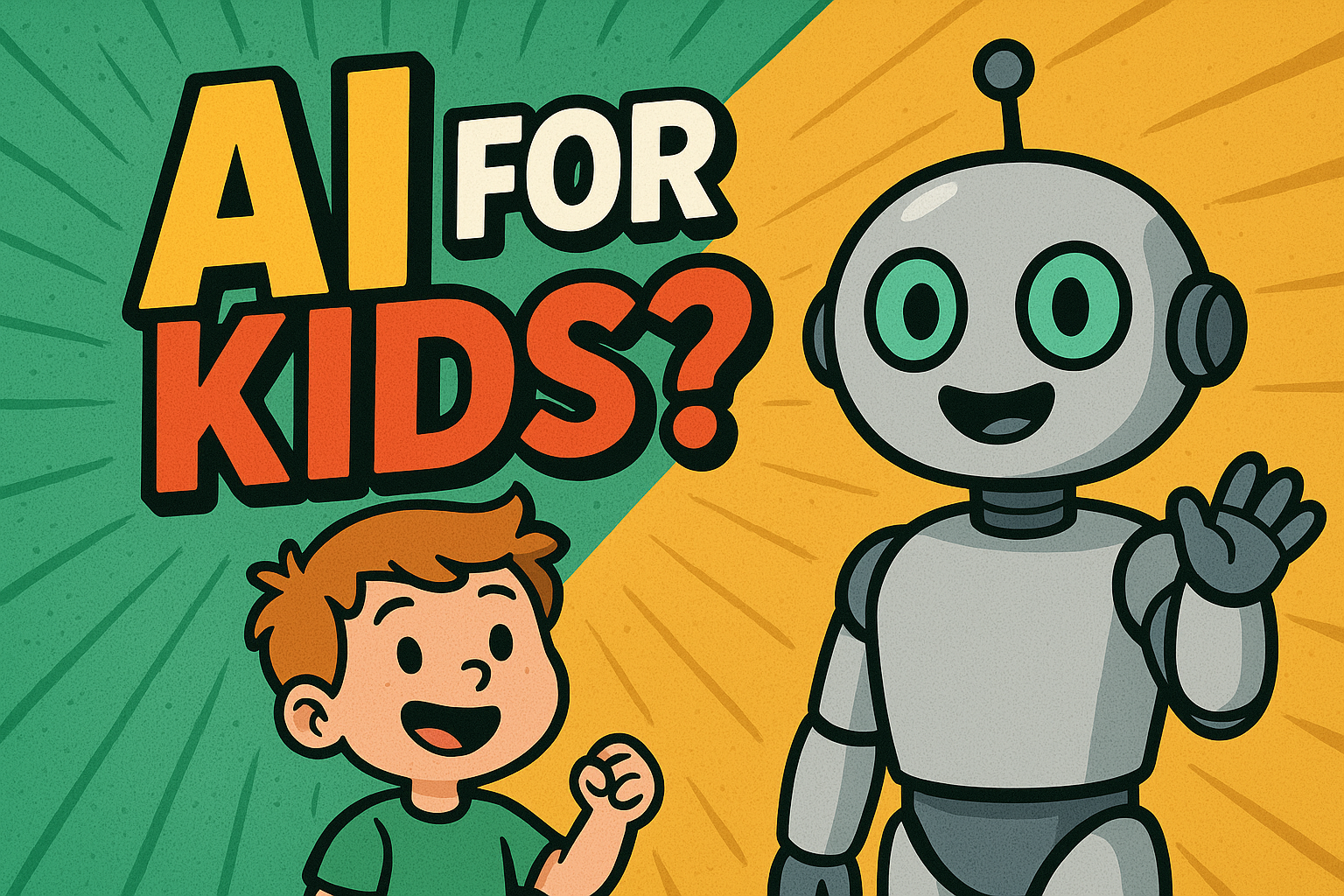
A Smart Encyclopedia for Curious Minds
Children are naturally curious, constantly asking "why" and exploring the world around them. AI can be an incredible resource for these curious young minds—acting as a super smart encyclopedia that's always ready to answer questions and follow their unique train of thought.
Unlike traditional resources that provide static information, the right AI can adapt to a child's learning style and interests in real-time. It can respond to their questions immediately, helping them maintain momentum in their learning journey without waiting for an adult to have time to research answers.
This immediate feedback loop is particularly valuable for children, who often lose interest if their curiosity isn't satisfied quickly. When a child wonders why the sky is blue or how birds fly, having an AI that can explain complex concepts in age-appropriate language keeps their natural enthusiasm for learning alive.
The key is finding an AI designed for children—one that presents information in a straight forward, understandable way while giving moderation and control over the kinds of content they can accessto parents.
Preserving Human Connection
While AI offers tremendous educational value, it's crucial that these tools enhance rather than replace human relationships. Technology should never substitute for the emotional connection, nuanced understanding, and shared experiences that come from interaction with parents, teachers, and peers.
The best AI assistants for families position themselves as tools that support human connection rather than compete with it. They can provide information that sparks meaningful conversations between parents and children or offer creative project ideas for families to work on together.
Parents play a vital role in ensuring AI becomes a bridge to deeper human connection rather than a barrier. By engaging with children about what they're learning through AI and participating in the discovery process together, technology becomes one element of a rich learning environment rather than an isolating experience.
When children share discoveries made through AI with parents and siblings, these tools become conversation starters rather than conversation enders—expanding the family's shared knowledge and experiences.
Parental Control and Safety First
Not all AI platforms are created equal, especially when it comes to child safety. General-purpose AI assistants weren't designed with children in mind and may expose young users to concepts or content that aren't developmentally appropriate.
For AI to be truly beneficial for children, parents need robust controls over the content their children can access. This means having the ability to set clear boundaries around topics, restrict certain types of content, and monitor interactions when appropriate.
These controls shouldn't be one-size-fits-all but should instead allow for customization based on each child's age, maturity level, and unique sensitivities. What's appropriate for a curious 12-year-old may be very different from what works for an inquisitive 6-year-old.
Parents should look for AI platforms that make these controls intuitive and granular, allowing them to create a digital environment that aligns with their family values and parenting approach.
Why Aris Is the Ideal AI tool for kids
Aris has been designed from the ground up with families in mind, offering features that address the specific needs of parents and children. Unlike general-purpose AI platforms, Aris creates a safe, enriching environment where children can explore their curiosities while parents maintain appropriate oversight.
One of Aris's standout features is its individual account system. Each child in the family can have their own profile, allowing the AI to tailor responses to their specific age, interests, and learning style. This personalized approach means the AI grows with your child, providing more sophisticated answers as they mature.
Parents have unprecedented control over content moderation with Aris. The platform allows guardians to set different parameters for each child, recognizing that a one-size-fits-all approach doesn't work for families. These customizable settings mean parents can gradually expand boundaries as children demonstrate readiness for more advanced concepts.
This combination of personalization and protection creates an environment where children can freely explore their interests while parents have peace of mind about the content they're accessing.
Practical Applications in Everyday Life
Aris isn't just for academic learning—it's a practical tool that families can use in countless everyday situations. In the kitchen, children can ask Aris about ingredients or simple recipes, learning valuable cooking skills alongside nutritional information. In the garden, it can help identify plants or explain the life cycle of butterflies as children observe them firsthand.
Home projects become learning opportunities when Aris can explain how simple machines work or the properties of different materials. A child helping with garage organization might learn about tool classification or the physics principles behind levers and pulleys.
For schoolwork, Aris provides explanations rather than just answers, helping children understand concepts deeply rather than simply completing assignments. It can offer different approaches to solving math problems, suggest experiments that demonstrate scientific principles, or provide historical context that makes social studies come alive.
These practical applications show how AI can be seamlessly integrated into family life, turning everyday activities into opportunities for discovery and growth.
Supporting Children's Natural Curiosity
Perhaps the greatest benefit of a well-designed AI assistant like Aris is its ability to support children's natural curiosity without imposing adult agendas. Children can follow their own interests and questions wherever they lead, creating organic learning experiences driven by genuine enthusiasm.
When a child becomes fascinated by dinosaurs, space travel, or underwater creatures, Aris can provide a depth of information that might be challenging for parents to access quickly. It can suggest connections between topics that spark new questions, creating a web of knowledge that expands organically.
This child-directed learning approach helps develop critical thinking skills and intellectual independence. Rather than always being told what to learn, children practice formulating questions and seeking information—skills that will serve them throughout their academic careers and beyond.
By embracing the right AI tools like Aris, families can create learning environments where children's natural curiosity thrives, supported by both technology and human guidance working in harmony.